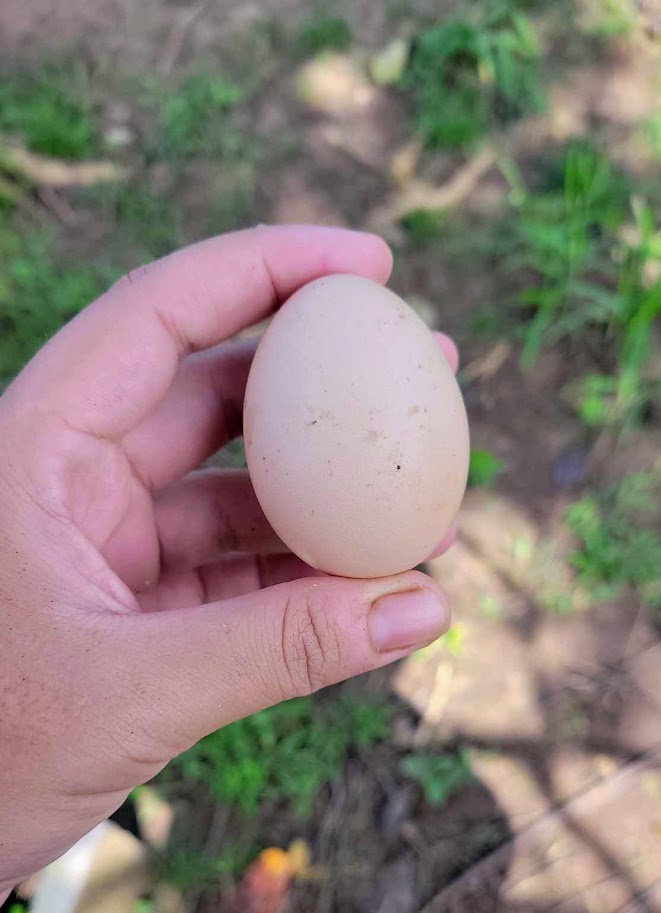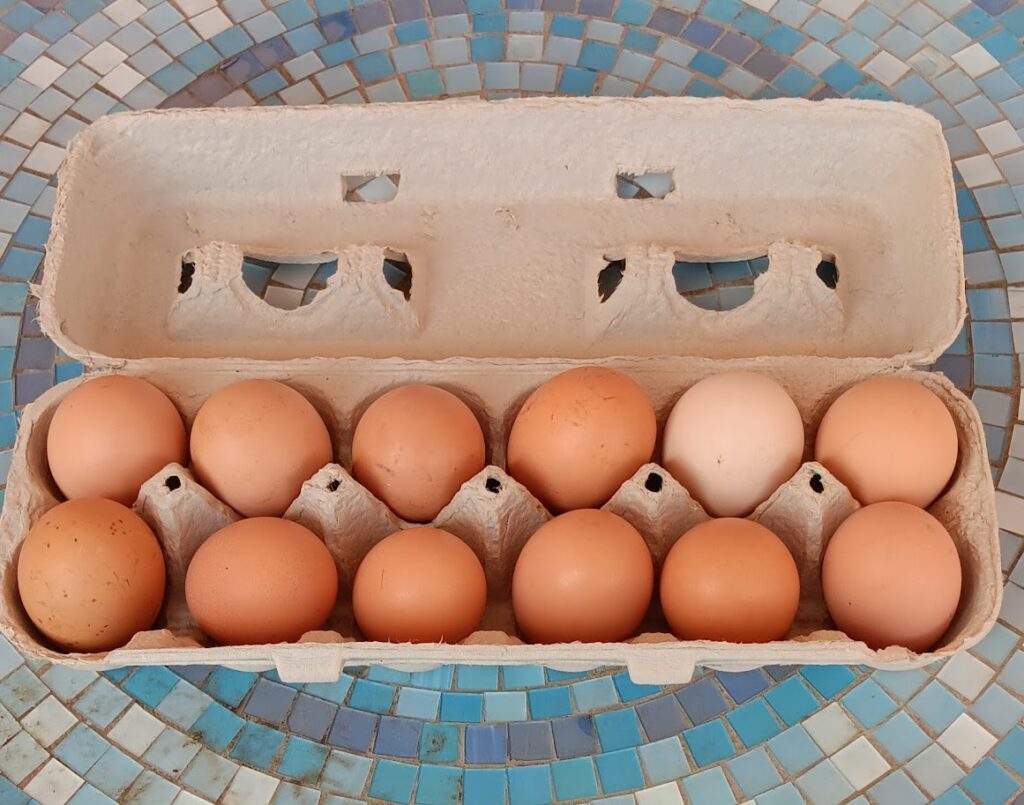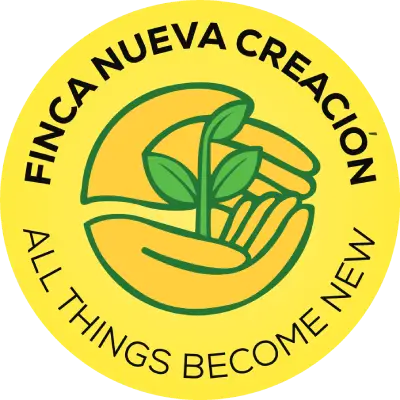
Pastured vs free-range vs cage-free vs organic. What do all of those terms mean and what are you buying from us at Finca Nueva Creación? When you choose our pastured-raised, free-range chicken eggs, you’re selecting a product that stands for quality and humane farming practices.
Pastured eggs – guess what? That’s not a regulated term. Anybody can say their eggs are from pastured poultry. But wait, didn’t we just use that term? Yep, now you have to keep reading. 😉
Free-range chicken eggs come from hens that have access to an outside area. It does not have to be grass. It doesn’t have a minimum size. So those hens might be in an overcrowded commercial chicken house most of their lives, but walk outside to a cement patio. So are hens are in an overcrowded chicken house with a cement patio? Never. Keep reading.
Cage-Free – They might never see the outside. They might be in a very crowded chicken house. As long as they aren’t in a cage.
Organic – This is a highly regulated USDA term. It is many pages long, but a quick summary is that the hens have to be fed feed that is USDA certified Organic. Each hen must have access to 2.0 square feet of outdoor space per bird. Also, 75% of that space must be soil with some type of vegetation on it. That’s right. Each hen has to have access to a patch of grass smaller than a couch cushion. In addition, they must have 6″ of perch space per bird. Oh, and the bright yellow color can be obtained by feeding the hens USDA approved organic colorings.
If you’re feeling deceived or angry, you should be. But wait, there’s hope. Your local, regenerative farm.
Buy Local Buy Regenerative

The eggs you buy from our small, regenerative farm are being laid by happy, healthy hens. They are not organic because the feed that they eat is not USDA certified organic. It is a complete layer feed that we buy from a local family owned and managed feed store. In turn, they purchase this feed from a feed producer on island. After much scientific and anecdotal research, we decided to ferment our hens’ feed. It makes it easier for them to digest, helps them get more water in our hot climate, and helps their bodies access the water-soluble vitamins easier.
Organic certification is extremely complicated and expensive to obtain. We will likely never seek it out. However, we do plan to completely eliminate commercial feed by year 3 of our farm. We will do this by growing the food (calories and protein) that they can’t get by simply foraging. More on that later.
We often use the term free-range when describing our eggs because that’s what most people are looking for in a quality egg. However, that doesn’t even indicate a minimum amount of outdoor space. Our hens have 24/7 access at least 50 square feet of outdoor space per bird. Our hens have access to their choice of 4 chicken tractors, which are wooden frames with perches , tarp roofs and covered, wooden nest boxes. The tractors don’t have doors on them, so they are able to self-regulate where they want to be. We move the tractors inside temporary grazing areas called paddocks. We use electric fence netting to create the movable paddocks. These nets do an excellent job of protecting them from predators. Every few days, we move the nets to create new paddocks and then move the tractors and hens onto the fresh soil and grass.


We never cage our hens or force them to stay inside. They are never overcrowded (unless they decide to snuggle on the perches) or fed yolk color enhancers. The spend their days scratching and pecking on pesticide-free and herbicide-free grass and soil where they eat seeds and insects and take dust baths under the Caribbean sun and sky.
We eat the same eggs we sell to you because we won’t sell anything that we aren’t willing to stake our own health upon.


Leave a Reply